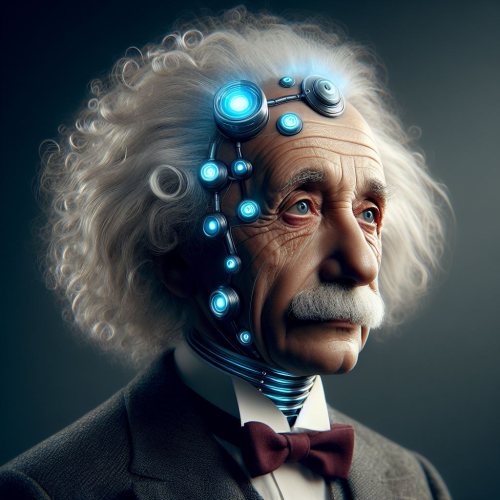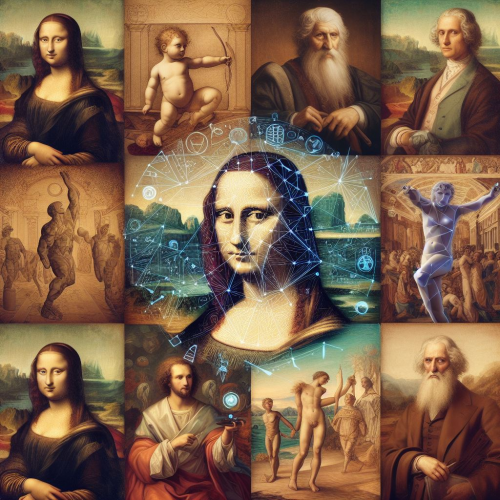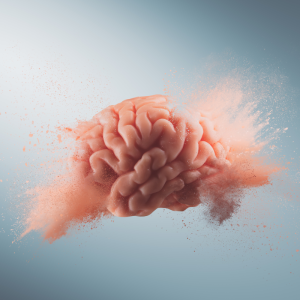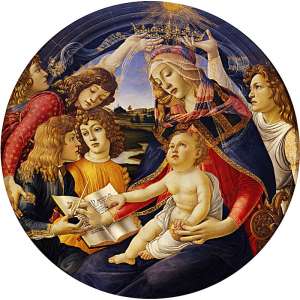Introduction
In the annals of human history, the term “genius” has been reserved for those rare individuals who have pushed the boundaries of our understanding, venturing into the unknown and returning with insights that have shaped our world. From the scientific revelations of Albert Einstein to the artistic masterpieces of Leonardo da Vinci, and from the philosophical musings of Socrates to the innovative inventions of Thomas Edison, geniuses have been the torchbearers of human progress.
As we stand on the precipice of a new era defined by artificial intelligence (AI), we are forced to confront a disconcerting question: Is AI the end of (human) genius?
The Rise of AI
Artificial intelligence has made leaps and bounds in recent years. Machine learning algorithms can now diagnose diseases with higher accuracy than human doctors, create artworks that rival those of human artists, and even compose music that is indistinguishable from pieces written by humans.
But does this mean that AI is encroaching on the territory of human genius? Could AI one day replace the Einsteins and da Vincis of the world?
Would AI Conquer Creativity?
Creativity—the ability to generate novel and valuable ideas—has long been considered the exclusive domain of human genius. However, AI is now capable of creating art, music, and literature, which raises concerns about the future of human creativity.

It's important to remember that while AI can mimic creativity, it does not truly understand it. An AI can analyze thousands of paintings and then produce a new one based on patterns it has learned, but it doesn’t understand what makes a painting beautiful or meaningful. It doesn’t feel the emotion that a human artist pours into their work. In this sense, the creativity of AI is merely an illusion.
Could AI Find Solutions to Problems Humans Can’t?
There’s no denying that AI has the potential to solve problems currently beyond human comprehension. With its ability to process vast amounts of data and perform complex calculations at lightning speed, AI systems could make breakthroughs in fields such as quantum physics, climate modeling, and genetic engineering.
However, while AI might be able to find solutions, it’s still up to humans to ask the right questions. The ability to ask insightful questions, challenge existing assumptions, and imagine new possibilities is something that AI cannot replicate.
Symbiotic Humans: The Next Step in Evolution?
As we delve deeper into the realm of AI, we’re beginning to see the emergence of a new kind of human—the symbiotic human. These are individuals who augment their natural abilities with AI, creating a symbiotic relationship between man and machine.
Elon Musk’s Neuralink project is a prime example of this. The goal is to implant tiny brain-machine interfaces into people’s brains, allowing them to communicate directly with computers. This could potentially unlock unprecedented levels of cognitive ability, making us smarter, more creative, and more efficient.
But what does this mean for human genius? Will the symbiotic humans of the future be considered geniuses, or will they simply be seen as products of their AI enhancements? More importantly, will there still be room for natural human genius in a world of augmented intellects?

The Counterpoint: AI as the End of Human Genius
While the argument has been made that AI cannot replace human genius, there is a counterpoint to consider. As AI continues to evolve and improve, it’s possible that it could surpass human intelligence in every aspect, including those areas we consider the hallmarks of genius.
AI’s ability to process and analyze vast amounts of data far exceeds that of humans. This could lead to breakthroughs and discoveries at a pace and scale that humans simply cannot match. In fields like mathematics, physics, and computer science, where progress is often driven by raw computational power, AI could potentially outstrip human achievement.
Moreover, AI doesn’t suffer from the limitations that humans do. It doesn’t tire, get bored, or forget. It can work on thousands of problems at once and keep going indefinitely. With these advantages, it’s conceivable that AI could reach heights of genius beyond human capacity.
However, this doesn’t necessarily mean that human genius would become obsolete. Instead, it could lead to a shift in what we value and recognize as genius. Perhaps in the future, genius will be less about individual achievement and more about our ability to create, understand, and work alongside increasingly intelligent machines.

Case Studies: AI in Action
Medical Diagnostics AI has made significant strides in the field of medical diagnostics. For instance, Google’s DeepMind developed an AI system that can diagnose eye diseases as accurately as top human doctors. The system was trained on thousands of high-resolution 3D scans of the human eye, learning to identify signs of diseases such as age-related macular degeneration and diabetic retinopathy.
However, while the AI system can diagnose these conditions, it doesn’t possess the human touch that is often crucial in healthcare. It can’t comfort a worried patient or explain a diagnosis with empathy and understanding. These are uniquely human traits that AI, no matter how advanced, cannot replicate.
Art Creation OpenAI’s DALL-E is an AI program that generates images from textual descriptions. It can create anything from “a two-story pink house shaped like a shoe” to “a cat made of sushi.” The results are often impressively creative, blurring the line between human and machine-made art.
But again, while DALL-E can create fascinating images, it doesn’t understand the meaning or emotion behind its creations. It doesn’t experience joy when it creates a beautiful image or disappointment when it fails. It simply generates outputs based on its programming and training.

The Uniquely Human
There are certain aspects of the human experience that AI may never be able to replicate.
Emotional Intelligence Humans have the ability to understand and respond to their own emotions and the emotions of others. This emotional intelligence allows us to navigate social situations, build strong relationships, and make decisions that take into account the feelings and needs of others. While AI can be programmed to recognize and respond to human emotions to some extent, it doesn’t actually experience these emotions itself.

Consciousness Consciousness—the ability to be aware of and to think about one’s own existence—is another uniquely human trait. We have a sense of self that allows us to reflect on our thoughts, feelings, and experiences. AI, on the other hand, doesn’t have a sense of self. It processes information and performs tasks without any awareness of its own existence.
Creativity While AI can mimic certain aspects of creativity, as we’ve seen with DALL-E, it doesn’t truly understand the creative process. Humans draw on their experiences, emotions, and intuition to create art, music, literature, and more. AI, however, simply identifies patterns and generates outputs based on its programming.

The Future of Genius in the Age of AI
So, is AI the end of (human) genius? The answer is a resounding no. While AI can mimic certain aspects of human genius, it cannot replace it. The creativity, curiosity, and critical thinking that define human genius are uniquely human traits that cannot be programmed into a machine.
In fact, the rise of AI could even be seen as a new beginning for human genius. With AI taking over routine tasks, humans are free to explore, create, and innovate. We can push the boundaries of our understanding even further, guided not by algorithms but by our insatiable curiosity.
In the end, AI is just a tool—a powerful one, but a tool nonetheless. Its value lies in how we use it. If we use AI to augment our own abilities, extend our reach, and amplify our genius, then the future of human genius looks brighter than ever.
So, let’s embrace the rise of AI, not with fear, but with optimism. Let’s see it not as a threat to human genius but as a testament to it. After all, it’s a product of our genius, a monument to our ingenuity, and a tool that can help us unlock even greater heights of achievement.
In the words of Albert Einstein: "The true sign of intelligence is not knowledge but imagination.” And that’s something no AI can replicate.
In the words of Albert Einstein:
The true sign of intelligence is not knowledge but imagination.” And that’s something no AI can replicate.












































